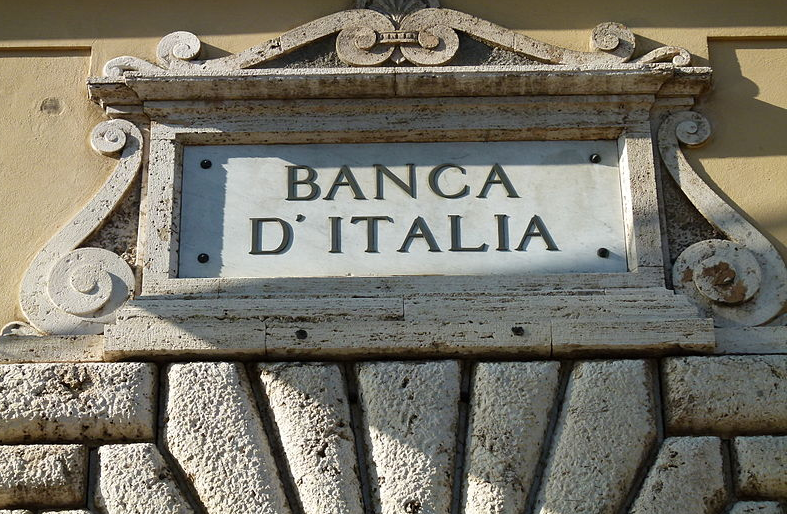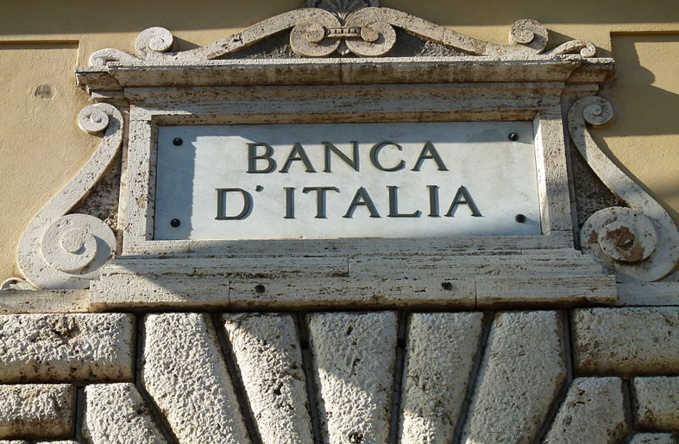Mario Draghi was rather indiscreet at the first press conference after the summer break. "Transfer of the monetary policy has never worked better than now," - declared President of the European Central Bank (ECB).
In less than a week later, the Italian had to explain himself. As luck would have it, information from the Bank of Italy shows that the very attractive monetary policy becomes when applied to real economy. In a recent monthly report, the Bank of Italy has set a new negative record.
Italy urgently needs growth. According to a recent study conducted by Deutsche Bank, Italy is the only impoverished euro zone country remained since 1999, according to the volume of economic output per capita. Even Greece and Portugal can boast with a small increase after establishment of the euro area. And there is very little chance of a sharp turn in the Italian economy.
In particular, this can be seen in the labor market. The unemployment rate in Italy (11.4%) is not the highest in the euro zone. However, youth unemployment is 39.2%. No other European country have such a big difference. "Young people in Italy are suffering the most," - says Marco Stringa of Deutsche Bank.
Economists at Deutsche Bank are not too optimistic in regard to the euro zone in general. However, their outlook for Italy is particularly grim. "Italy is known for its political instability, but there has never been anything like what we are experiencing now," - said Stringa. The country is becoming a political mystery.
There are two things about which economists are concerned the most: a dangerous relationship between troubled banks and sagging state, and the forthcoming referendum in late autumn. Italian Prime Minister Matteo Renzi wants to hold a vote for reorganization of the Senate. He has pinned his political fate on outcome of these elections, so the referendum is essentially an indirect vote for Renzi himself. He knows that he is supported by more than a third of the population, but it is not enough to get the most. Recent polls show that those, who are going to vote against, are a little ahead.
According to Stringa, the biggest political risk for the euro area is not politically paralyzed Spain or upcoming elections in France and Germany, but Italy and its referendum. Others agree with him. On Tuesday, ratings agency Fitch warned about possible consequences of the planned referendum: "All political turmoil or problems in banks, which are extended to real sector of the economy, may have a negative impact on the rating assigned to Italy."
The entire financial world is concerned about the referendum. The meaning is clear: the time is running short for Italy. If in the near future Rome fails to implement radical changes, one of the European Union founders will become one of the biggest risks for the euro zone. According to analysts of Morgan Stanley, who are engaged in a detailed study of the plebiscite, it’s better not to expect a success. Experts estimate probability that Renzi and his referendum will find a way out at only 35%. Then probably, the country will get a transitional government, perhaps even led by Renzi, but it also will deliberately delay the reform process.
Analysts are worried even more with another scenario where Renzi with his referendum fails miserably, and, to top it off, the scheduled elections bring victory to euro sceptic Five Star Movement. Experts do not believe that Italy would leave the euro zone, but a risk of cancellation of reforms and growing debt will still be extremely high.
The country needs a cheaper euro to recover. According to Morgan Stanley’s calculations on fair value for the country, the euro is overvalued by about 15% in Italy. The euro area is more unfavorable only to Greece: "Markets underestimate huge risks for Italian bonds and shares."
source: welt.de
In less than a week later, the Italian had to explain himself. As luck would have it, information from the Bank of Italy shows that the very attractive monetary policy becomes when applied to real economy. In a recent monthly report, the Bank of Italy has set a new negative record.
Italy urgently needs growth. According to a recent study conducted by Deutsche Bank, Italy is the only impoverished euro zone country remained since 1999, according to the volume of economic output per capita. Even Greece and Portugal can boast with a small increase after establishment of the euro area. And there is very little chance of a sharp turn in the Italian economy.
In particular, this can be seen in the labor market. The unemployment rate in Italy (11.4%) is not the highest in the euro zone. However, youth unemployment is 39.2%. No other European country have such a big difference. "Young people in Italy are suffering the most," - says Marco Stringa of Deutsche Bank.
Economists at Deutsche Bank are not too optimistic in regard to the euro zone in general. However, their outlook for Italy is particularly grim. "Italy is known for its political instability, but there has never been anything like what we are experiencing now," - said Stringa. The country is becoming a political mystery.
There are two things about which economists are concerned the most: a dangerous relationship between troubled banks and sagging state, and the forthcoming referendum in late autumn. Italian Prime Minister Matteo Renzi wants to hold a vote for reorganization of the Senate. He has pinned his political fate on outcome of these elections, so the referendum is essentially an indirect vote for Renzi himself. He knows that he is supported by more than a third of the population, but it is not enough to get the most. Recent polls show that those, who are going to vote against, are a little ahead.
According to Stringa, the biggest political risk for the euro area is not politically paralyzed Spain or upcoming elections in France and Germany, but Italy and its referendum. Others agree with him. On Tuesday, ratings agency Fitch warned about possible consequences of the planned referendum: "All political turmoil or problems in banks, which are extended to real sector of the economy, may have a negative impact on the rating assigned to Italy."
The entire financial world is concerned about the referendum. The meaning is clear: the time is running short for Italy. If in the near future Rome fails to implement radical changes, one of the European Union founders will become one of the biggest risks for the euro zone. According to analysts of Morgan Stanley, who are engaged in a detailed study of the plebiscite, it’s better not to expect a success. Experts estimate probability that Renzi and his referendum will find a way out at only 35%. Then probably, the country will get a transitional government, perhaps even led by Renzi, but it also will deliberately delay the reform process.
Analysts are worried even more with another scenario where Renzi with his referendum fails miserably, and, to top it off, the scheduled elections bring victory to euro sceptic Five Star Movement. Experts do not believe that Italy would leave the euro zone, but a risk of cancellation of reforms and growing debt will still be extremely high.
The country needs a cheaper euro to recover. According to Morgan Stanley’s calculations on fair value for the country, the euro is overvalued by about 15% in Italy. The euro area is more unfavorable only to Greece: "Markets underestimate huge risks for Italian bonds and shares."
source: welt.de



















